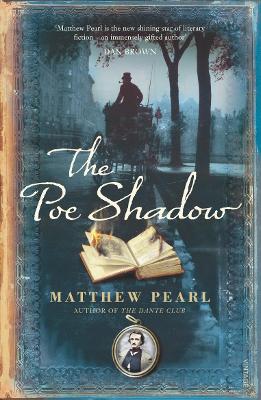
Baltimore, 1849. The body of Edgar Allan Poe has been buried in an unmarked grave. The conclusion that Poe was a second-rate writer who died a drunkard is accepted by all. But none of this deters Quentin Clark, an ardent admirer who risks his own career and reputation in a passionate crusade to salvage Poe's.
Clark discovers that Poe's last days are riddled with vital unanswered questions. But just when Poe's death looks destined to remain a mystery, Quentin seeks out the one person who can solve this strange case: the real-life model for Poe's brilliant fictional detective character, C. Auguste Dupin.
Having successfully recruited the man he believes to have inspired Poe's Dupin, Clarke is confronted by another claiming to be the true model. The two master detectives each seek to prove he is the real 'Dupin' by solving the mystery of Poe's death. Clark finds himself enmeshed in sinister machinations involving international political agents, a female assassin, the corrupt Baltimore slave trade and the lost secrets of Poe's final hours. With his own future hanging in the balance, he must turn master investigator himself to unchain his now imperilled fate from that of Poe.
- ISBN10 0099478226
- ISBN13 9780099478225
- Publish Date 4 January 2007 (first published 1 January 2006)
- Publish Status Active
- Publish Country GB
- Imprint Vintage
- Format Paperback (B-Format (198x129 mm))
- Pages 384
- Language English
Reviews


empressbrooke
To begin with, Quentin Clark is the most unsympathetic and annoying protagonist I have ever encountered. He throws away his job and his fiance at the merest whisper of a conspiracy. He's obsessed with Poe beyond all rational thought. After abandoning his fiance for over a year and a half, he's stunned to discover she's been betrothed to someone else. He creates adversaries where there are none. By the time the book ended, I was more than ready to be done with him and never hear from him again.
The other characters do not fare much better. Their motives are cloudy, at best. I could never quite understand why people were behaving as they were. Everyone was dramatic and over-the-top, and I couldn't identify anyone that I even liked.
The mystery itself doesn't propel itself forward very well, and there's simply too much muddled stuff in between Poe's death and the final resolution of what happened to him. Although I appreciate the historical analysis, of which the author did much, it's not presented in an interesting way.
If you're a diehard Poe fan, you might enjoy this take on the poet's life and death. Otherwise, I can't think of a reason I'd recommend this book to anyone.
